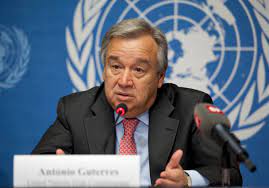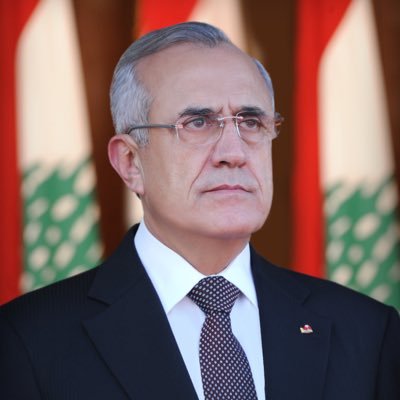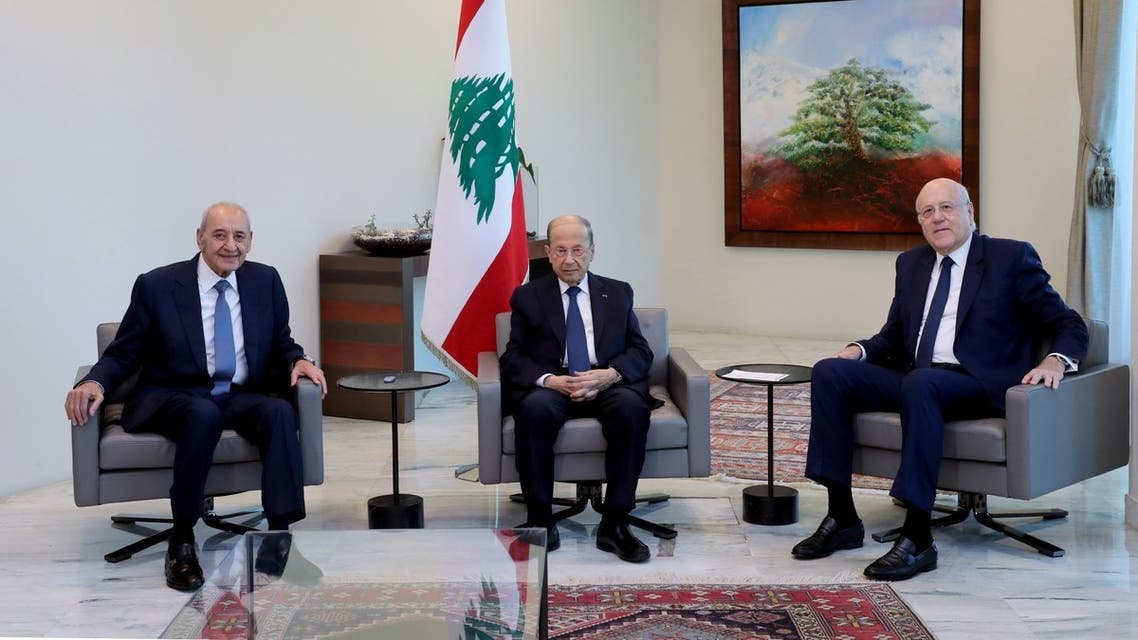
BEIRUT, (Reuters) - U.N. Secretary-General Antonio Guterres said Lebanon's financial collapse was caused by "something similar to a Ponzi scheme", according to a video of comments he made while visiting Beirut this week. Lebanon is in the third year of an economic meltdown that began in 2019 when the financial system collapsed under the weight of huge state debt - the result of decades of corruption and mismanagement and the unsustainable way it was financed. Report ad Critics of the Lebanese authorities have compared the financial system to a Ponzi scheme, depending on fresh borrowing to pay back existing debt. The central bank has denied this. "As far as I understand what has happened in Lebanon is that Lebanon was using something similar to a Ponzi scheme..., which means that together with of course corruption and other, probably, forms of stealing, the financial system has collapsed," Guterres said in the video circulated on social media.
The crash has caused the Lebanese pound to lose more than 90% of its value and savers to be frozen out of their deposits in the paralysed banking system. Mike Azar, an expert on the Lebanese financial system, said Guterres had expressed similar views at another closed-door gathering between the U.N. chief and members of Lebanese civil society on Tuesday. Asked by Reuters about the remarks, a U.N. spokesperson said the secretary-general's views on the financial crisis were "more fully expressed" at a news conference at the end of his visit.

بصرف النظر عن دقة المعلومات المنشورة عن تفاصيل الصفقة وعن مهندسيها وعن الذين وافقوا عليها او رفضوها او صمتوا بانتظار مفاعيلها، فقد ادى الموقف الشجاع لرئيس الحكومة نجيب ميقاتي الى تفادي غرق البلاد في آخر مرحلة من مراحل الانهيار الشامل. نأمل ان يتوقف مسلسل الانهيارات بخطوة جريئة تجمع المنادين بالمصلحة الوطنية قبل اي
مصلحة اخرى حول مطلب واحد وهو بسط سيادة الدولة وتحقيق استقلالية المؤسسات وانتظام عملها وانهاء اي مظهر من مظاهر الدويلة

By Najia Houssari -- BEIRUT: The Lebanese Constitutional Council was unable to take a decision on Tuesday regarding the appeal submitted by President Michel Aoun’s team against the amendments introduced by Parliament to the electoral law, because it “failed to secure a majority of seven members,” according to spokesman Judge Tannous Meshleb. The amended electoral law is thus effective, and the parliamentary elections shall be held in accordance with the law after it is published in the Official Gazette. Meshleb denied “any political deal being proposed to the Constitutional Council in return for accepting the appeal.” Following the council meeting, he stressed: “The discussion was legal, and after seven sessions, we were unable to reach a unanimous decision. There was no sectarian division, but members had different opinions regarding expatriate voting. I regret not being able to reach a decision, but there wasn’t much else we could do. This is a failure on the Constitutional Council’s part. I don’t know if any of my colleagues interfered, but I don’t doubt anyone.”
Aoun and the Free Patriotic Movement (FPM) had objected to the amendments made to the electoral law in terms of changing the expatriate voting formula by canceling the six allocated seats and allowing expatriates to vote for the electoral lists, as well as canceling mega voting centers. Baabda Palace sources described was happened in the Constitutional Council as a “fail,” accusing “certain forces of disrupting the judiciary, the Constitutional Council, the procedural authority and the criminal auditing.” On Monday, the Lebanese heard rumors about a barter deal between Hezbollah, the FPM and Parliament Speaker Nabih Berri; the Constitutional Council would approve Aoun’s appeal in exchange for stopping Tarek Bitar, the judge leading the probe into the Beirut port explosion, from questioning the politicians he accused of being involved in the crime. The deal also includes making new judicial appointments and appointing a new Central Bank governor.
في عصر العولمة وتطور تقنيات الاتصال وتكنولوجيا المعلومات من المعيب تخصيص محافظة للمنتشرين لاسيما ان عددهم يرتفع بإضطراد وتأثيرهم على العملية الانتخابية …
Khazen History


Historical Feature:
Churches and Monasteries of the Khazen family

St. Anthony of Padua Church in Ballouneh
Mar Abda Church in Bakaatit Kanaan
Saint Michael Church in Bkaatouta
Saint Therese Church in Qolayaat
Saint Simeon Stylites (مار سمعان العامودي) Church In Ajaltoun
Virgin Mary Church (سيدة المعونات) in Sheilé
Assumption of Mary Church in Ballouneh
1 - The sword of the Maronite Prince
2 - LES KHAZEN CONSULS DE FRANCE
3 - LES MARONITES & LES KHAZEN
4 - LES MAAN & LES KHAZEN
5 - ORIGINE DE LA FAMILLE
Population Movements to Keserwan - The Khazens and The Maans
ما جاء عن الثورة في المقاطعة الكسروانية
ثورة أهالي كسروان على المشايخ الخوازنة وأسبابها
Origins of the "Prince of Maronite" Title
Growing diversity: the Khazin sheiks and the clergy in the first decades of the 18th century
Historical Members:
Barbar Beik El Khazen [English]
Patriach Toubia Kaiss El Khazen(Biography & Life Part1 Part2) (Arabic)
Patriach Youssef Dargham El Khazen (Cont'd)
Cheikh Bishara Jafal El Khazen
Patriarch Youssef Raji El Khazen
The Martyrs Cheikh Philippe & Cheikh Farid El Khazen
Cheikh Nawfal El Khazen (Consul De France)
Cheikh Hossun El Khazen (Consul De France)
Cheikh Abou-Nawfal El Khazen (Consul De France)
Cheikh Francis Abee Nader & his son Yousef
Cheikh Abou-Kanso El Khazen (Consul De France)
Cheikh Abou Nader El Khazen
Cheikh Chafic El Khazen
Cheikh Keserwan El Khazen
Cheikh Serhal El Khazen [English]
Cheikh Rafiq El Khazen [English]
Cheikh Hanna El Khazen
Cheikha Arzi El Khazen
Marie El Khazen